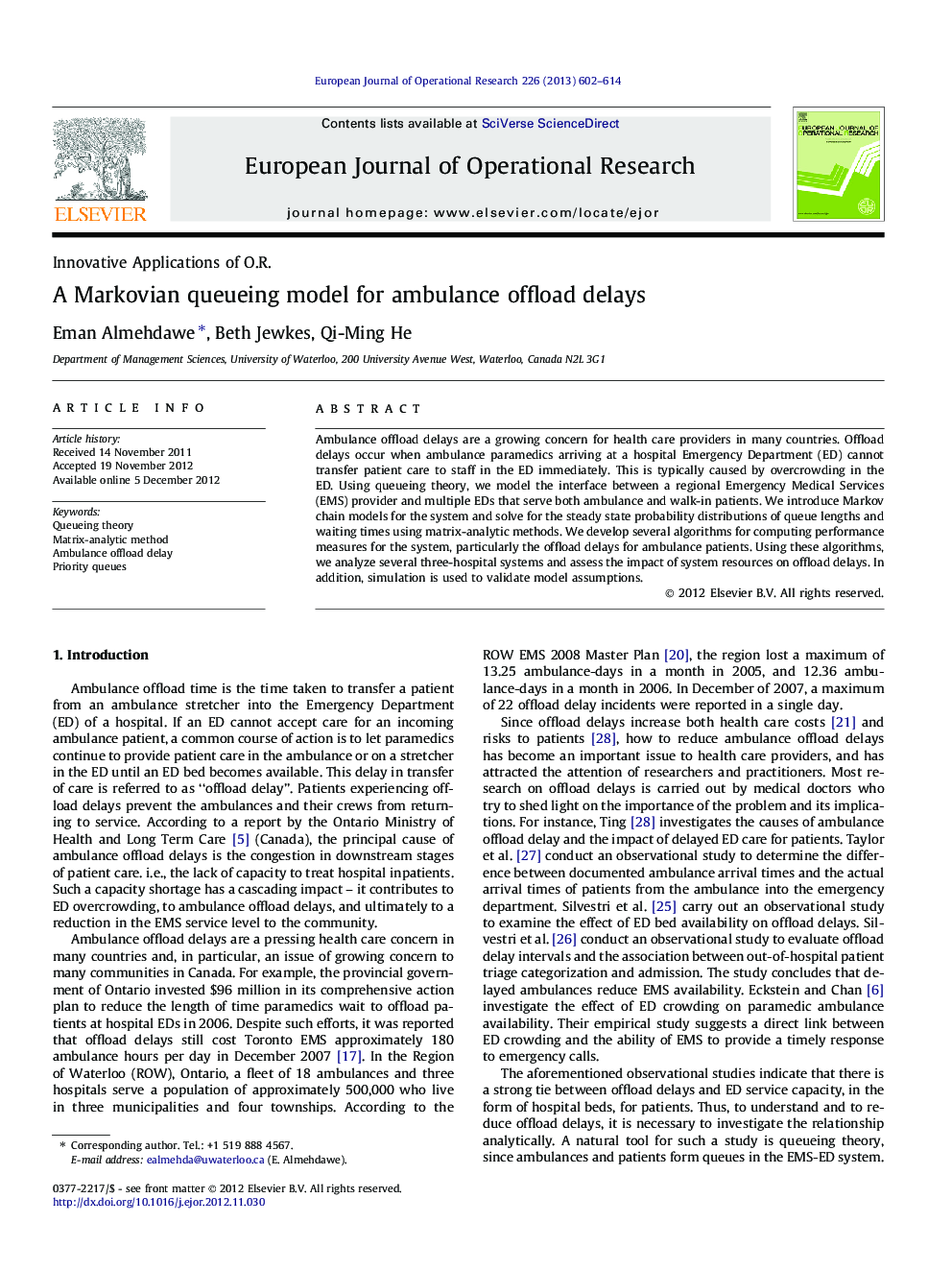| Article ID | Journal | Published Year | Pages | File Type |
|---|---|---|---|---|
| 479975 | European Journal of Operational Research | 2013 | 13 Pages |
Ambulance offload delays are a growing concern for health care providers in many countries. Offload delays occur when ambulance paramedics arriving at a hospital Emergency Department (ED) cannot transfer patient care to staff in the ED immediately. This is typically caused by overcrowding in the ED. Using queueing theory, we model the interface between a regional Emergency Medical Services (EMS) provider and multiple EDs that serve both ambulance and walk-in patients. We introduce Markov chain models for the system and solve for the steady state probability distributions of queue lengths and waiting times using matrix-analytic methods. We develop several algorithms for computing performance measures for the system, particularly the offload delays for ambulance patients. Using these algorithms, we analyze several three-hospital systems and assess the impact of system resources on offload delays. In addition, simulation is used to validate model assumptions.
► We model the interaction between an EMS provider and EDs in a region. ► We use queueing theory to build the model. ► We derive a number of performance measures for the system. ► We examine the problem of offload delays experienced by ambulances. ► We show that the queueing model is robust with respect to the basic assumptions.
